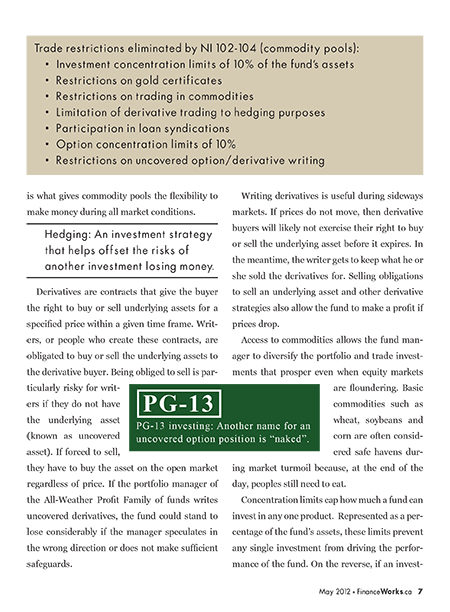How Mutual Funds Make Money
Post on: 12 Июнь, 2015 No Comment

How Mutual Funds Work and How to Determine If They Are Best For You
You can opt-out at any time.
Please refer to our privacy policy for contact information.
Before investing in mutual funds, you need to ask a few basic questions: How do mutual funds make money? How do mutual funds work? Are they the best investment type for me? Here are the answers:
How Mutual Funds Make Money With Dividends
Dividends are payments to shareholders (investors) of stocks, bonds, or mutual funds. These payments represent a company’s profit that is divided among the shareholders. Since mutual funds consist of pooled money from other investors and this pooled money in turn invests in stocks and/or bonds that pay dividends and interest, those payments are then passed along to the mutual fund investor. Mutual fund investors can choose if they want dividends to be reinvested (to buy more shares of the fund) or to be received as cash payment or deposited into another account.
It is important to note first that mutual fund shareholders can be taxed on a fund’s dividends, even if these distributions are received in cash or reinvested in additional shares of the fund. Also, for certain tax-deferred and tax-advantaged accounts, such as an IRA, 401(k) or annuity, dividends are not taxable to the investor while held in the account. Instead, the investor will pay income taxes on withdrawals during the taxable year the distribution (withdrawal) is made. Some mutual funds, such as Municipal Bond Funds may pay income to shareholders that is exempt from federal taxation.
Also many investors have a misunderstanding of the effect of receiving a dividend from their fund. This may be caused intentionally by financial professionals who take advantage of the customer’s confusion. This practice, which is a violation of ethics rules and is called selling dividends. For example, dividends are payed periodically, such as monthly or quarterly. Now assume that a fund declares a that a dividend will be paid to shareholders of record at the end of the month. It is a violation for a financial advisor to encourage a customer to buy the mutual fund in advance of the ex-dividend date, implying that receiving the dividend is a benefit to the investor.
How Mutual Funds Make Money From Share Price Appreciation
Stock funds invest primarily in stocks. A share of stock represents a unit of ownership, although a very small percentage of the company. When an investor owns stock in a company, they can profit in two ways: the stock price can increase, or the stock can pay dividends. You already know about dividends. Now understand the basics on Share Price Appreciation.
Most of an investor’s total return comes as a result of share price appreciation. An investor who purchases shares at $10.00 and then sees the price increase to $12.00 a year later has earned a 20 percent return from price appreciation. Share price appreciation is not a taxable event until the shares are actually sold.
A Word About How Mutual Funds Work and Net Asset Value (NAV)
The basic idea of how mutual funds work, what I call Mutual Funds 101. is simple. You are already aware that mutual funds are a type of investment or savings vehicle. But what are they? Are they like stocks or bonds? How do mutual funds work? A good way to understand mutual funds is to consider them a basket of investments. The reason is that one mutual fund often invests in dozens or hundreds of other investment securities, called holdings, such as stocks or bonds. Therefore, when you buy a mutual fund, you are not buying a particular stock or bond; you are buying a basket of stocks or bonds (or sometimes a combination of both).
The manager of the fund, called the portfolio manager, buys investments according to the objective of the fund. The fund’s prospectus will inform investors of the fund’s investment objectives. such as growth, income, growth and income, and so on..
The value is that investors are able invest a potentially small amount of money, but have access to a professionally managed and diversified portfolio.
Also, mutual funds are not technically valued by share price. The value of a mutual fund is expressed as its net asset value or NAV. The NAV of a fund is the total value of the securities in the fund minus liabilities, divided by shares outstanding.
Disclaimer: The information on this site is provided for discussion purposes only, and should not be misconstrued as investment advice. Under no circumstances does this information represent a recommendation to buy or sell securities.














